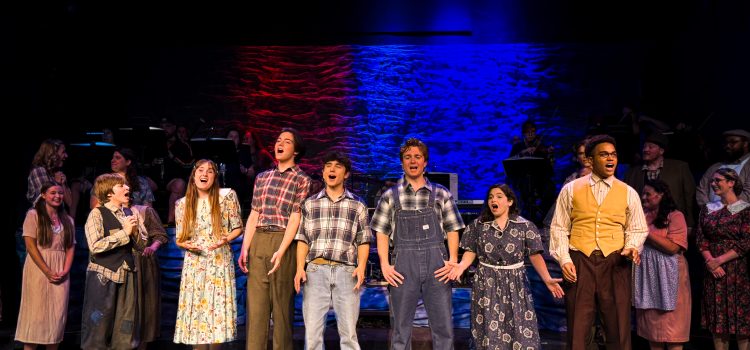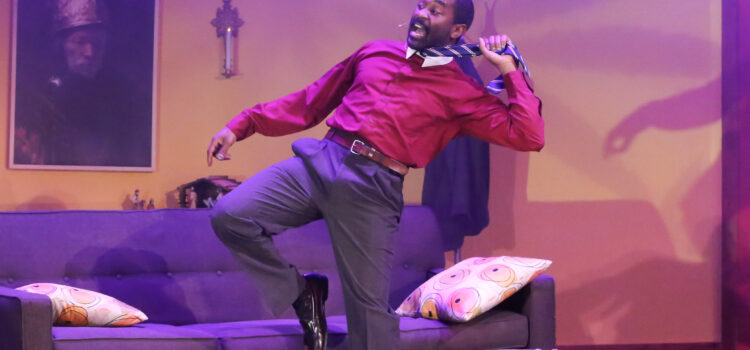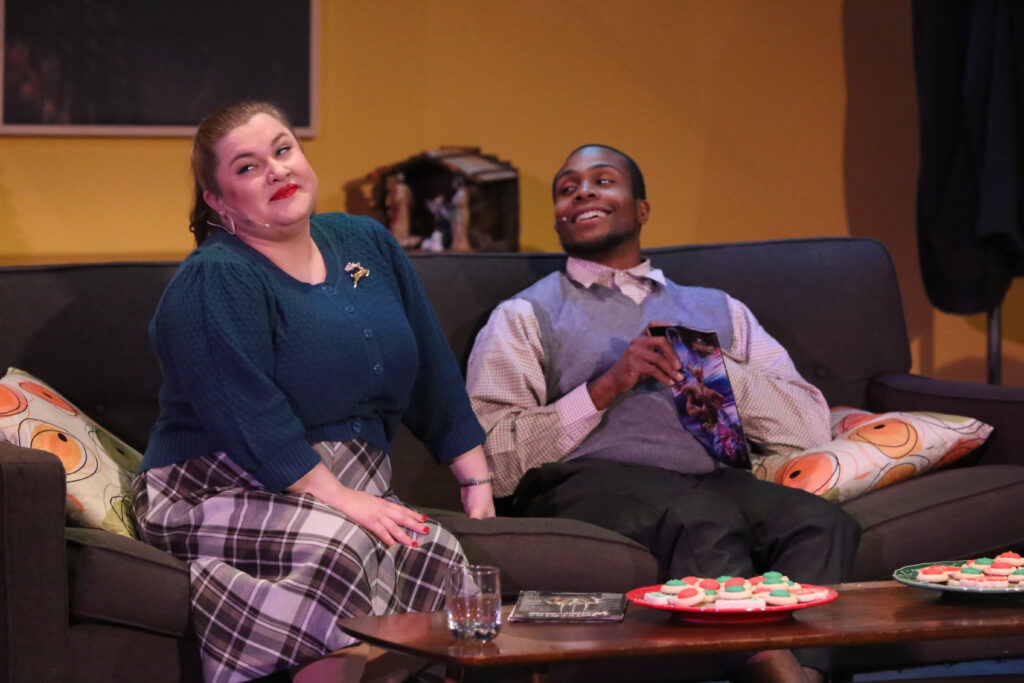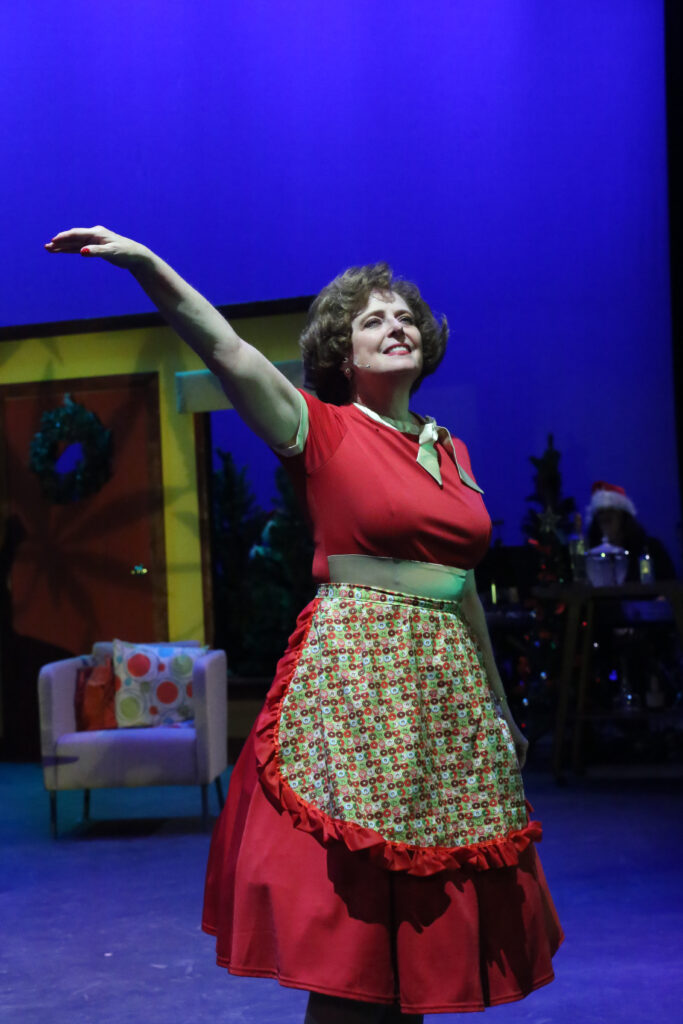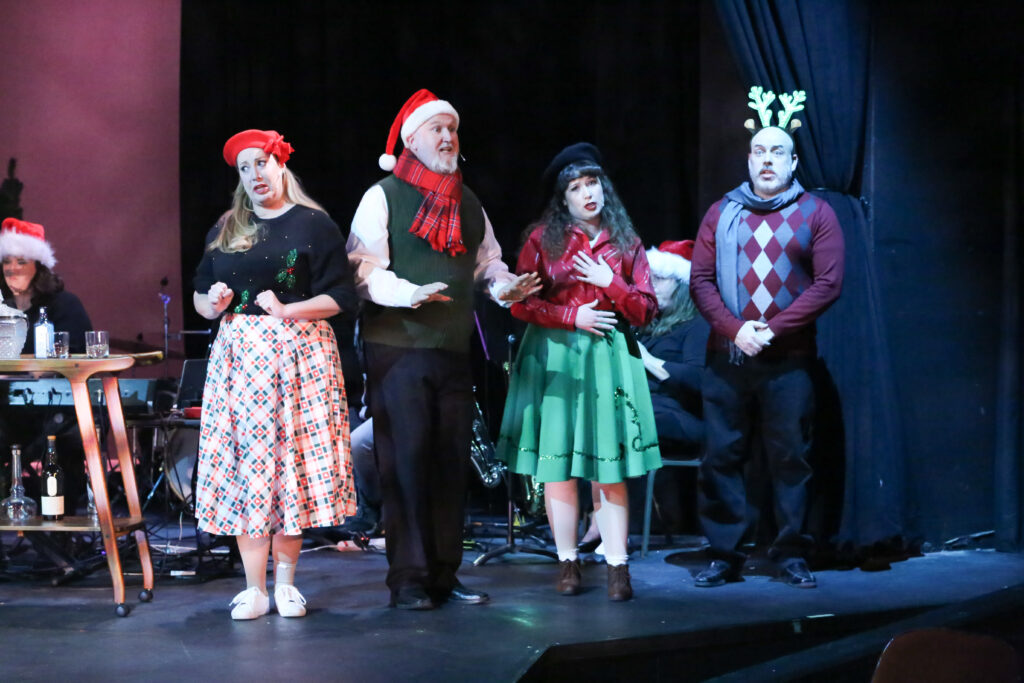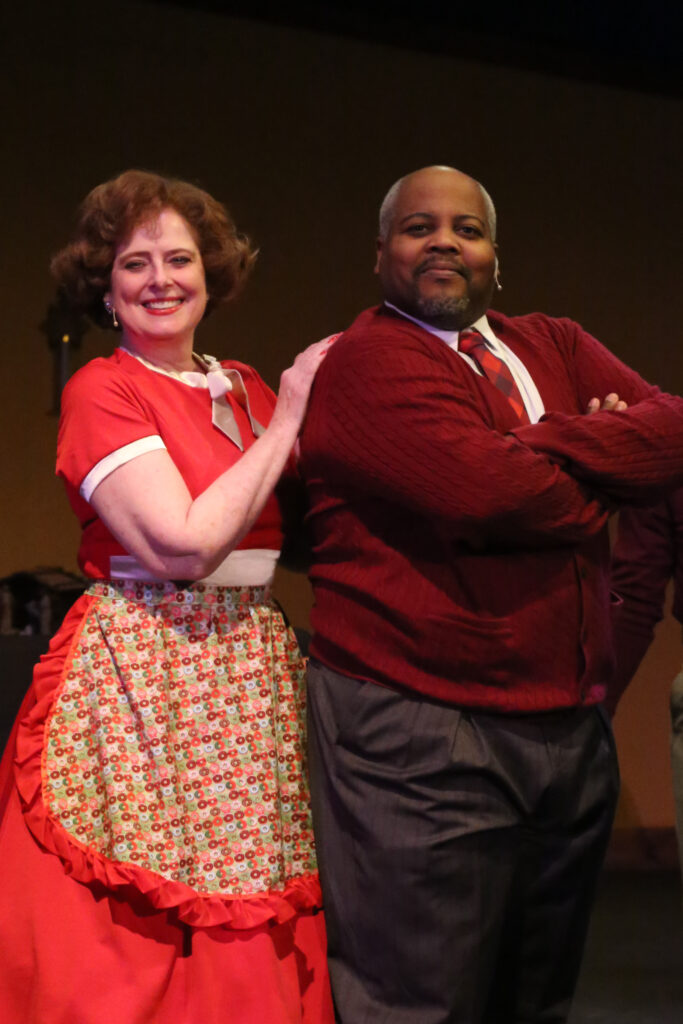By Lynn Venhaus
A refreshing breeze is blowing through the cozy confines of the Tower Grove Abbey in Stray Dog Theatre’s ambitious youth opera, “The Second Hurricane,” and it’s a breath of fresh air.
An earnest, well-rehearsed ensemble – 12 youth choir members and 11 adult choir members accompanied by a 12-piece orchestra, are unified in song and spirit in this rarely performed piece by Aaron Copland, flawless in their harmonies and heartfelt interpretation.
The remarkable young performers are as poised and polished as the adults are, and the entire effort is impressive. Director Gary F. Bell and Music Director John Gerdes strived for the highest level of excellence of all involved, and their dedication shows.
Copland is known as the Dean of American Music for his distinct musical identity that evokes the American landscape and spirit. One of the most influential composers of the 20th century, he wrote this opera, his first, in 1937, specifically for schoolchildren.
During a career that spanned 60 years, Copland incorporated jazz, folk and classical music in his traditional themes, shaping an American voice, and connecting deeply with audiences.
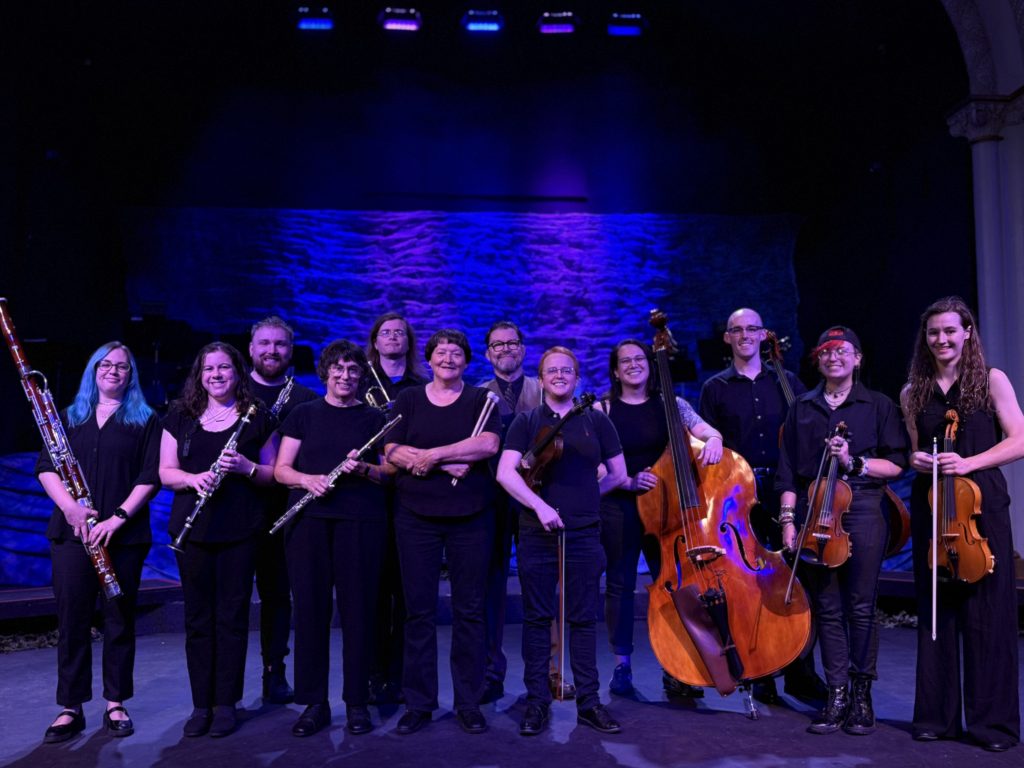
Perhaps you’ve heard “Fanfare for the Common Man,” a 1942 orchestral piece commissioned as a tribute to World War II soldiers; “Rodeo,” a 1942 ballet choreographed by Agnes de Mille honoring the American West that includes the very recognizable “Hoe-Down” (Remember the “Beef. It’s What’s for Dinner” ad campaign?); and his symbolic 1944 ballet “Appalachian Spring” that features the iconic “Simple Gifts” melody. He won an Oscar for the film score to “The Heiress,” among other accolades.
Bell, a longtime fan, was part of the opera’s revival in 1985 for the composer’s 85th birthday celebration. Then a 21-year-old artist living in New York City, Bell was honored to be cast in the production at the Henry Street Settlement, its original site, and met Copland, who died five years later.
His impact on Bell was significant, and the SDT artistic director said this opera is very personal to him.
Inspiring this ensemble to achieve their full potential was important, and Gerdes, a respected local musician and educator, also attained new artistic heights with the choirs and conducting the superb orchestra. They both carried this off with precision and perseverance.
The entire creative cast and crew executed Stray Dog’s first opera splendidly with an appreciation of the material, and emotional storytelling that resonates. An unmistakable feeling of community and its American essence is apparent.
The libretto by poet Edwin Denby was written specifically for young people and set during the Great Depression. It’s succinct and matter of fact, without frills or flourishes.
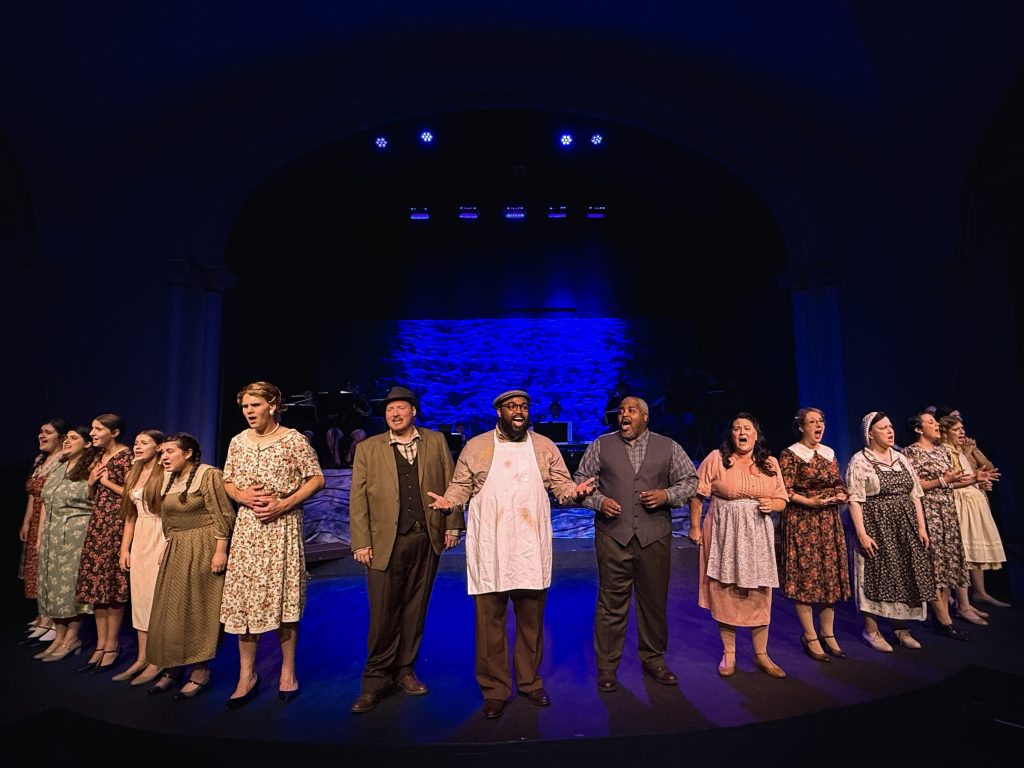
The program notes describe the time and place as: “A small Middle West town following a devastating hurricane in the 1930s. We start in a local high school and move to a rise in ground in a waste country near a great river.”
Inspired by a true story, a group of enthusiastic high school students volunteered to help with delivering supplies to victims of a recent hurricane. Little do they realize the dangers involved, for they are in harm’s way as the weather forecast predicts the possibility of a second hurricane.
With their different personalities and social hierarchy, the students tussle with each other, not agreeing much on duties and strategies. But faced with another natural disaster, frightened and with little resources as they’re stranded on a remote island, they learn to work together, cooperating and demonstrating courage and tolerance.
It’s a terrific lesson on teamwork. The six students on the rescue mission include Nadja Kapetanovich as top of the class Queenie, Bryn Sentnor as determined Gwen, Jabari Boykin as brainy Lowrie, Soren Carroll as new kid Butch, Wesley Balsamo as bully Fat, and Ben Hammock as Gyp, Fat’s younger brother. Cece Mohr plays Jeff, a country boy they discover living in a rural area.
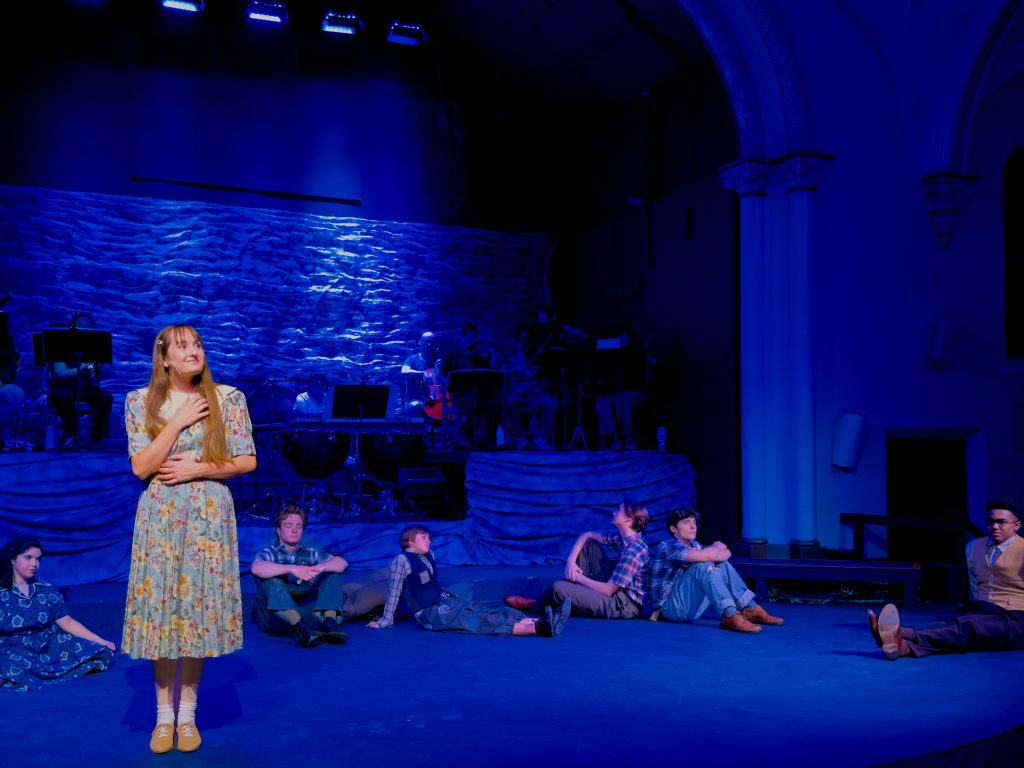
They are bolstered by new friendships and a sense of belonging, and there’s tangible relief and gratitude from the parents.
The other expressive, self-assured students that shine in the chorus include Eliana Bryson, Margot Carroll, Abby Donald, Sydney Fendler, Sierra Hale and Ava Hettenhausen.
Demonstrating substantial technical skill, the adult choir includes Madeline Black, Leah Bryson, Jacob Cowley, Gansner, Rebecca Hatlelid, Lizzie Klemm, Brittany Kohl, Jess McCawley, Chris Moore, Jan Niehoff and Terrell Thompson. Kohl acts as the school principal and Niehoff as an aviator, Miss Maclenahan (she’s nearly unrecognizable, swallowed up in a cumbersome coat and hat).
From a first-row perch, Gerdes guides the 12 accomplished musicians to create a stirring sound and passionately interpret Copland’s music.
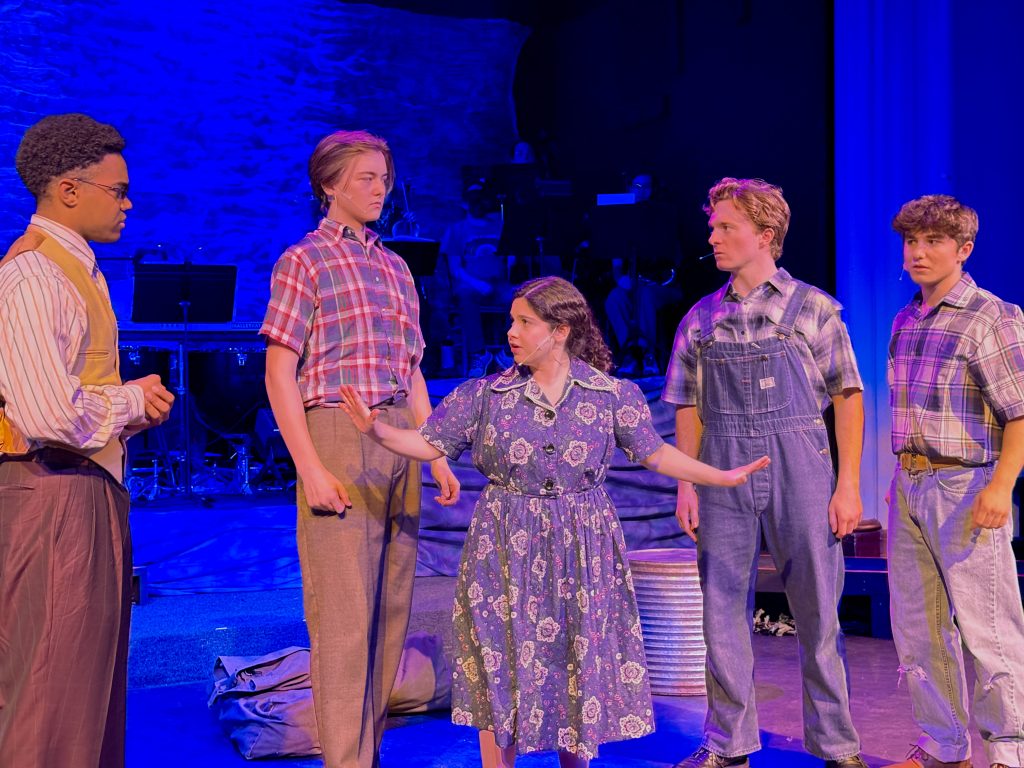
The cohesive musicians, behind the singers on stage, are– Helen Bednara, bassoon; Mo Carr, violin 2; Andrea Clark, flute; Jill Hamill, viola; Bill Howells, trombone; Michaela Kuba, double bass; Emily Mehigh, clarinet; Paul Rueschhoff, cello; G Schmiedeke, violin 1; Brandon Lee Thompson, oboe; Deborah Thuet, percussion; and Chris Dressler and Larry Levin each play trumpet at select performances.
Costume designer Colleen Michelson collected numerous print dresses for the period looks, and some of the boys wear overalls to reflect their rural life. Sarah Gene Dowling designed wigs for several singers. Tyler Duenow designed the lighting and Justin Been again created impeccable sound, simulating weather and making the music fill the theater.
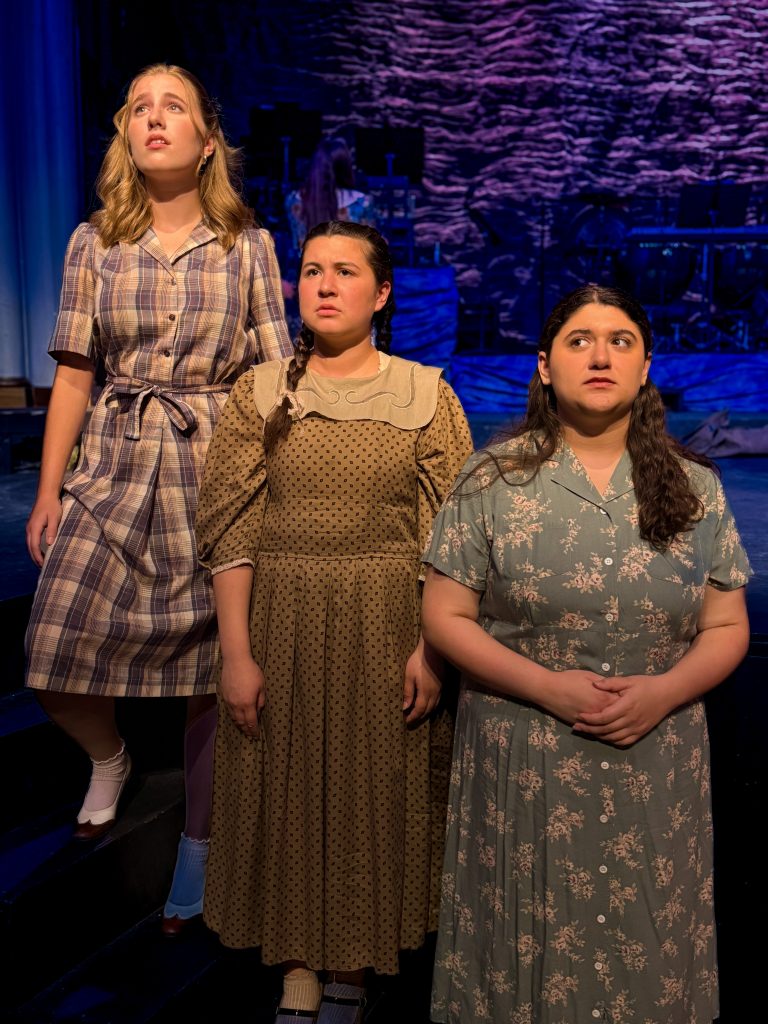
The two-act musical is only an hour, and the numbers are mostly presented as choral pieces, but four youngsters deliver moving and memorable solos.
Displaying clear, crisp and confident tones, Wesley Balsamo, Ben Hammock, Nadja Kapetanovich and Cece Mohr are affecting in their songs, simply titled with their characters’ names. Their stage presence is notable, too.
“The Second Hurricane” appears to be a rewarding collaborative experience, where everyone seemed to bring out the best in each other.
Stray Dog Theatre presents the Aaron Copland opera “The Second Hurricane” Aug. 7 – 30, Thursdays through Saturdays at 8 p.m., with Sunday matinees at 2 p.m. on Aug. 10, Aug. 17 and Aug. 24 at the Tower Grove Abbey, 2336 Tennessee Avenue. For more information or for tickets, visit the website, www.straydogtheatre.org.
Box Office/Will Call opens 1 hour prior to performance. Tower Grove Abbey is a “general seating” theatre. The opera is 1 hour long, with an intermission.
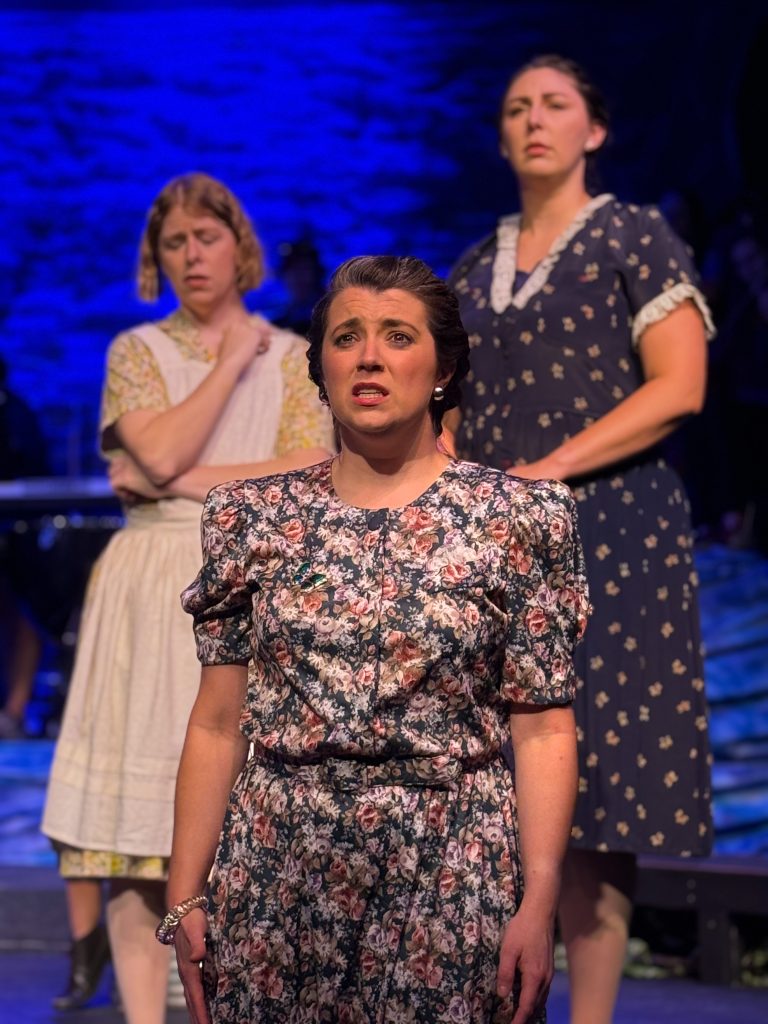

Lynn (Zipfel) Venhaus has had a continuous byline in St. Louis metro region publications since 1978. She writes features and news for Belleville News-Democrat and contributes to St. Louis magazine and other publications.
She is a Rotten Tomatoes-approved film critic, currently reviews films for Webster-Kirkwood Times and KTRS Radio, covers entertainment for PopLifeSTL.com and co-hosts podcast PopLifeSTL.com…Presents.
She is a member of Critics Choice Association, where she serves on the women’s and marketing committees; Alliance of Women Film Journalists; and on the board of the St. Louis Film Critics Association. She is a founding and board member of the St. Louis Theater Circle.
She is retired from teaching journalism/media as an adjunct college instructor.

